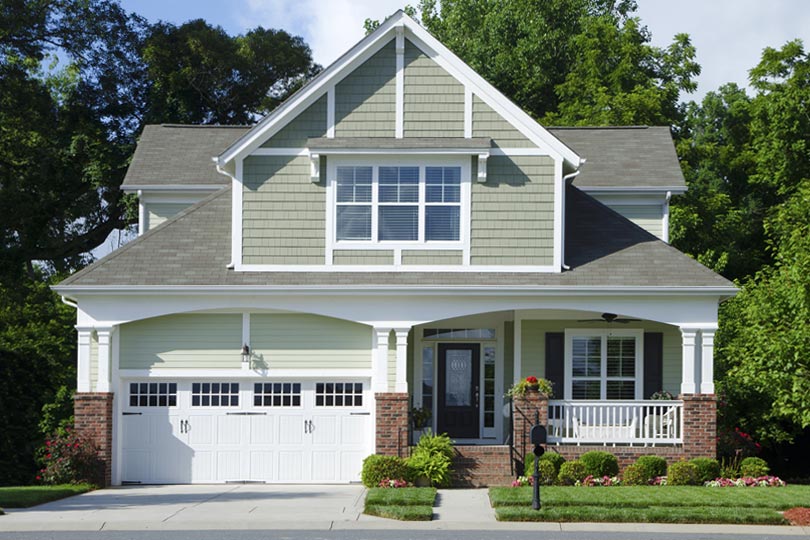Features To Consider When Building Your Own Home

Building a home is easier in some ways than buying, at least where getting the features you want is concerned. In some cases, it may be simply adjusting the costs to include the extra features, but in others, you may need to calculate the long-term benefit of adding a feature, an additional bedroom, carport, etc.
House hunters looking for existing construction with a fully finished basement, for example, may be tricky depending on the housing market.
But when designing your own home, if that is important to you, it’s a simple matter of calculating the extra expense and anticipating that cost in your overall budget.
And what about people who expect their family to grow over time? Building a house to grow into instead of out of makes a lot of sense if you plan on keeping the property long enough to experience changes in family size along the way.
Do you need to consider buying a property with more land for a bigger yard? If you don’t already own the land you need to build, this is a consideration worth considering. Some home loan programs (FHA, VA, USDA) may not allow the purchase of “excess land,” so you’ll need to know what that definition means in your housing market.
Do you need a home with a fenced-in yard? That may seem like a cosmetic issue to some, but any homeowner with a dog can tell you the fence is not decorative in that context.
Building a garage is something some might consider, but others may prefer to lower the overall cost of doing so by opting for a carport instead.
Are you building with an FHA One-Time Close or a VA single-close construction loan? If so you’ll likely need to get caught up on what the FHA or VA considers “luxury items,” such as a barbecue pit or a swimming pool.
You may need to find an alternate way to finance such additions if they are not permitted by your loan agreement.
The number of bedrooms the home has is a significant consideration. It’s not just the previously mentioned anticipated changes in the family’s size you should be concerned with; if you have a family emergency and need a guest bedroom to help out, that’s motivation enough for some to add the expense to the construction project.
Some don’t need the extra living space, but if you think you might, it could be worth comparing at least the costs of adding another bedroom.
Want More Information About One-Time Close Loans?
We have extensively researched the FHA (Federal Housing Administration) and the VA (Department of Veterans Affairs) One-Time Close Construction loan programs.
We have spoken directly to licensed lenders that originate these residential loan types in most states, and each company has supplied us with the guidelines for their products. We can connect you with mortgage loan officers who work for lenders who know the product well and consistently provide quality service.
If you are interested in being contacted by a licensed lender in your area, please send responses to the questions below. All information is treated confidentially.
OneTimeClose.com provides information and connects consumers to qualified One-Time Close lenders to raise awareness about this loan product and to help consumers receive higher-quality service.
We are not paid for endorsing or recommending the lenders or loan originators and do not otherwise benefit from doing so. Consumers should shop for mortgage services and compare their options before agreeing to proceed.
Please note that investor guidelines for the FHA and VA One-Time Close Construction Program only allow for single-family dwellings (1 unit) – and NOT for multi-family units (no duplexes, triplexes or fourplexes).
In addition, the following homes/building styles are not allowed under these programs: Kit Homes, Barndominiums, Log Cabin Homes, Shipping Container Homes, Stilt Homes, Solar (only) or Wind Powered (only) Homes.
Contact Us: Send Us Your Request – Spam Safe
Please send your email request to [email protected], which authorizes OneTimeClose.com to share your personal information with one mortgage lender licensed in your area to contact you.
1. Send your first and last name, e-mail address, and contact telephone number.
2. Tell us the city and state of the proposed property.
3. Tell us your and/or the Co-borrower’s credit profile: Excellent – (680+), Good - (640-679), Fair – (620-639), or Poor- (Below 620). 620 is the minimum qualifying credit score for this product.
4. Are you or your spouse (Co-borrower) eligible veterans? If either of you is an eligible veteran, down payments as low as $0 may be available up to the maximum amount your debt-to-income ratio per VA will allow – there are no maximum loan amounts as per VA guidelines.
Most VA lenders will go up to $1,500,000 and review higher loan amounts on a case-by-case basis. If not, the FHA down payment is 3.5% up to the maximum FHA lending limit for your county.
Do you know what's on your credit report?
Learn what your score means.

April 14, 2024The current VA backed One-Time close construction loan to permanent financing allows eligible Veterans to build a new home with $0 down. The FHA version allows for 3.5% down. These One-Time Close loan types are thriving in Florida and could be the right choice for your family. Learn about these One-Time Close mortgages to and build a home that suits your exact needs.
April 12, 2024What do we mean by our headline? There are many ways VA and FHA One-Time Close construction loans differ from other types of mortgages, but how do single-close loans differ from each other Each single-close loan program has unique features for the loan's standard features.
April 5, 2024Are you a first-time home buyer? Some assume that just one type of home loan is offered and that getting the right home means filling out a generic credit application. But the reality is that depending on whether you want to build or buy, there are specific mortgage programs, procedures, and terms you should know about before you commit.








